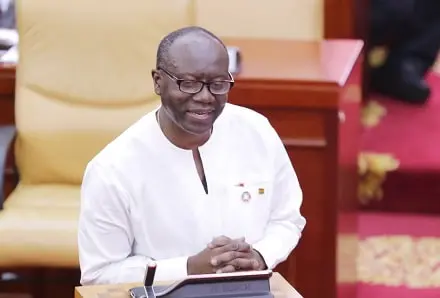The $1 billion interest-free loan from the International Monetary Fund (IMF) will hit Ghana’s account today, April 17, 2020.
The fund from the International Monetary Fund is meant to mitigate the impact of the raging coronavirus disease pandemic on the lives of the people and the economy of Ghana.
It will be the biggest loan facility received from the IMF in Ghana’s 63-year-old history with the Bretton Woods institution.
The Resident Representative of the International Monetary Fund in Ghana, Dr Albert Touna-Mama, told the Daily Graphic yesterday that the institution would issue a one-off transfer of the funds to the Bank of Ghana (BoG) on or before Friday.
“The disbursement is one-off; there is no tranching,” the IMF resident representative told a Journalist at the Daily Graphic.
He added that the amount was proceeds of an interest-free loan that the International Monetary Fund approved for the country on April 13. Repayment will start after five-and-half years.
The approval followed a request the government made to the fund in March, this year, for emergency assistance under its Rapid Credit Facility (RCF).
ALSO READ: Ghana in a better position to revive the economy than most African countries – Ofori-Atta
The RCF is a concessionary loan product for low-income countries (LICs) that are facing an urgent balance of payment (BOP) needs that have been necessitated by natural disasters, shocks and/or emergencies that lead to economic fragilities.
Dr Touna-Mama explained that the IMF expected the loan to “address the urgent fiscal and BOP needs that Ghana is facing as a result of the COVID-19 pandemic.”
He stated: “This disbursement will also improve confidence and catalyze support from other development partners.”
He said, unlike previous IMF loan assistance that was under special programmes, the $1 billion loan was not under a programme and “does not have conditionality or targets to review at regular intervals.”
Ghana’s most recent financial assistance from the IMF came in 2015 when the country entered into a $918-million extended credit facility (ECF) programme that helped to restore policy credibility and debt sustainability while bolstering growth and the cedi’s strength.




















